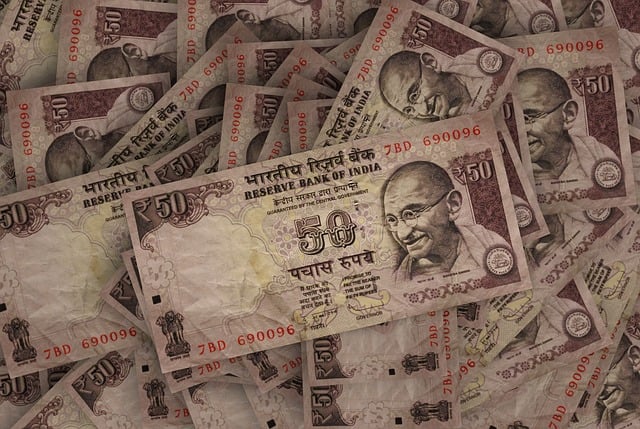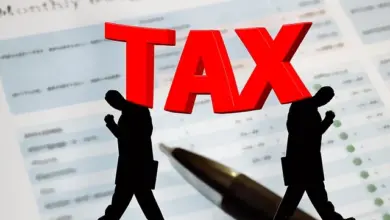How to Manage Your Finances and Banking in the Netherlands

Managing finances and banking in the Netherlands as a foreigner or expat can be straightforward if you understand the system and take proactive steps. From opening a bank account to navigating taxes, here’s a comprehensive guide to help you manage your money effectively while living in the Netherlands.
1. Opening a Bank Account in the Netherlands
Types of Accounts:
- Current Account (Betaalrekening) : For everyday transactions like paying bills and receiving salaries.
- Savings Account (Spaarrekening) : For saving money with interest.
- Joint Account : Shared accounts for couples or families.
Requirements for Opening an Account:
- Valid passport or ID card.
- Proof of address in the Netherlands (e.g., rental agreement, utility bill).
- BSN (Burgerservicenummer): A citizen service number required for tax and administrative purposes.
- Proof of income or employment contract (for some banks).
Steps to Open an Account:
- Choose a Bank : Major banks include ING, ABN AMRO, Rabobank, and smaller options like bunq or N26.
- Schedule an Appointment : Most banks require an in-person meeting to open an account.
- Submit Documents : Bring all required paperwork to the meeting.
- Receive Your Card and Details : Once approved, you’ll get a debit card and online banking access.
Tips:
- Consider digital-only banks like bunq or Revolut for lower fees and easier account setup.
- If you’re struggling to open an account due to residency status, try smaller local banks or credit unions.
2. Understanding Dutch Banking Fees
Dutch banks charge various fees, so it’s important to understand what to expect:
- Monthly Maintenance Fees : Typically €0–€5 per month, depending on the bank and account type.
- ATM Withdrawal Fees : Free within your bank’s network; small fees may apply elsewhere.
- International Transfer Fees : Can be high, so use services like Wise or Revolut for better rates.
- Overdraft Fees : Avoid overdrafts, as penalties can be steep.
To minimize costs, compare banks and negotiate fees if possible.
3. Managing Taxes in the Netherlands
Key Tax Obligations:
- Income Tax (Inkomstenbelasting) : Progressive rates ranging from 9.7% to 49.5%, depending on income.
- Social Security Contributions : Automatically deducted from your salary.
- Municipal Taxes : Paid to your local municipality for services like waste collection.
- 30% Ruling : Expats with specialized skills may qualify for this tax benefit, reducing taxable income by 30%.
How to File Taxes:
- Use the Mijn Belastingdienst portal available on the Dutch Tax Office website (Belastingdienst.nl).
- Deadlines vary but are typically around May 1st each year.
- Non-residents file separately through the Non-Resident Tax Office (RNI) .
Tips:
- Take advantage of deductions for expenses like rent, commuting, and childcare.
- Consult a tax advisor if your situation is complex (e.g., dual residency).
4. Budgeting and Cost of Living
Average Monthly Expenses:
- Rent : €800–€1,500+ in cities like Amsterdam; cheaper in smaller towns.
- Utilities : €100–€200 (electricity, water, internet).
- Groceries : €200–€400 per person.
- Transportation : €100–€150 for a monthly public transport pass; fuel costs ~€2/L.
- Healthcare : Covered largely by the state; mandatory basic insurance costs ~€100–€150/month.
Budgeting Tools:
- Apps like YNAB (You Need A Budget), MoneyWiz, or Mint integrate with Dutch banks.
- Set aside funds for unexpected expenses, such as repairs or medical emergencies.
5. Healthcare and Insurance
The Dutch Healthcare System:
- Mandatory health insurance covers essential care; additional coverage is optional.
- To access care, choose a health insurer (zorgverzekeraar) and pay monthly premiums.
- Supplement coverage with optional packages for dental, physiotherapy, etc.
Steps to Enroll:
- Register with a health insurer within four months of arriving in the Netherlands.
- Submit necessary documents (ID, BSN, proof of address).
- Choose a general practitioner (huisarts) for primary care.
Tips:
- Compare insurers using platforms like Independer.nl or Zorgwijzer.nl.
- Keep receipts for reimbursable expenses until claims are processed.
6. Transferring Money Internationally
If you need to send or receive money internationally, consider cost-effective options:
- Wise (formerly TransferWise) : Low fees and real exchange rates.
- Revolut : Multi-currency accounts with low conversion fees.
- OFX or XE : Suitable for large transfers.
Avoid using traditional banks for international transfers, as their fees and exchange rates are often unfavorable.
7. Saving and Investing in the Netherlands
Savings Options:
- Savings Accounts : Interest rates are low (~0.01–0.5%), but they’re safe and accessible.
- Pension Plans : Many employers offer pension schemes; contribute voluntarily if self-employed.
- Tax-Free Savings (Beleggingsrekening) : Invest in stocks, bonds, or mutual funds with favorable tax treatment.
Investment Opportunities:
- Stocks, bonds, and mutual funds through platforms like DEGIRO, BinckBank, or Saxo Bank.
- Real estate investment trusts (REITs) for passive income.
Retirement Planning:
- Mandatory pensions cover most workers; voluntary plans (lijfrenteverzekering) allow additional savings.
8. Credit Cards and Loans
Credit Cards:
- Debit cards (PIN cards) are more common than credit cards.
- Credit cards are available but less widely used; Visa and MasterCard are accepted.
Loans:
- Personal loans (persoonlijke lening): Interest rates ~3–7%.
- Mortgages: Fixed or variable rates; require substantial down payments (~10–20%).
Tips:
- Maintain a good credit history to qualify for favorable loan terms.
- Compare offers from multiple lenders before committing.
9. Digital Tools for Financial Management
The Netherlands has embraced fintech solutions, making financial management easier:
- Online Banking : All major banks offer mobile apps for account management.
- Budgeting Apps : YNAB, MoneyWiz, and Mint integrate with Dutch banks.
- Payment Services : iDEAL is the most popular online payment method.
10. Cultural Norms Around Money
Understanding cultural attitudes toward money can aid your adjustment:
- Directness : The Dutch value transparency in financial discussions.
- Saving vs. Spending : Frugality and long-term planning are highly regarded.
- Tipping : Service charges are included in restaurant bills; tipping ~5–10% is appreciated but not mandatory.


